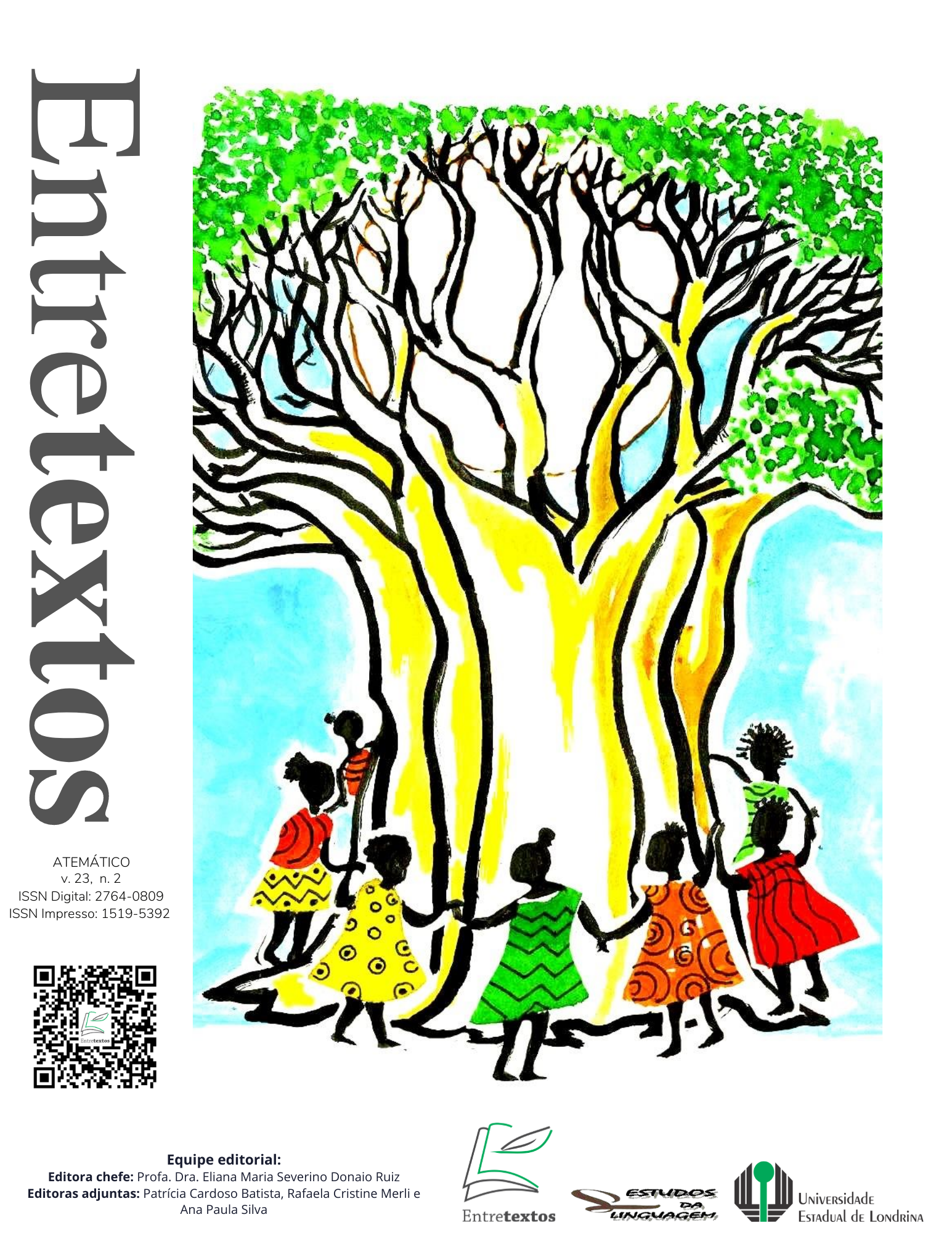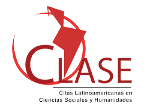Pensando y haciendo con niñismo en los estudios de literatura infantil a juvenil
DOI:
https://doi.org/10.5433/1519-5392.2023v23n2p335-363Palabras clave:
crítica criancista, literatura e cultura infantil e juvenil, feminismo novo materialista, pesquisa participativa, pós-humanismoResumen
En este artículo compartimos nuestras reflexiones sobre cómo el niñismo nos ha permitido navegar por supuestos teóricos que dan forma a nuestro campo y desarrollar nuevas posiciones y prácticas de investigación que fomentan las interdependencias entre niños y adultos. Justyna Deszcz-Tryhubczak se ha basado en el niñismo como marco para la introducción de la investigación participativa con lectores jóvenes como una forma de promover la colaboración entre niños y adultos. Macarena García-González ha desplegado el niñismo para pensar el adultismo y sus analogías con el sexismo. Si bien ofrecemos una crítica del niñismo como un concepto esencializador, también mostramos cómo para ambos ha servido como puerta de entrada hacia otros enfoques, y especialmente comprensiones post-antropocéntricas tanto de textos, lectores y el mundo como de nuestros compromisos críticos. Finalmente, argumentamos que el niñismo puede seguir siendo un punto de partida productivo para nuevas aperturas en los estudios de literatura y cultura infantil y estudios de la infancia si se convierte en una noción plural y desordenada que cuestiona el discurso de la esperanza de un futuro mejor que define la vida de los niños.
Descargas
Citas
BARAD, K. Meeting the universe halfway: Quantum physics and the entanglement of matter and meaning. Durham, N.C.: Duke University Press, 2007.
BEAUVAIS, C. The mighty child: Time and power in children's literature. Amsterdam/London: John Benjamins Publishing Company, 2015.
BEAUVAIS, C. Thinking the adult–child relationship with existentialism. In: SPYROU, S.; ROSEN, R.; e COOK D. T. (Eds.). Reimagining childhood studies. London: Bloomsbury Academic, 2018, p. 57–74.
BISWAS, T. Who needs sensory education? Studies in Philosophy and Education, v. 40, n. 3, 287–302, 2021.
CHAPLEAU, S. Childist criticism and the silenced voice of the child: A widening critical and institutional re-consideration of children's literature. In: FINDLAY R.; SALBAYRE, S. (Eds.). Stories for children, histories of childhood. Paris: Presses Universitaires François-Rabelais, 2007, p. 85–106. Disponivel em: http://books.openedition.org/pufr/4946
CHAPLEAU, S. Work in progress: Children's literature and childist criticism - towards an institutional re-consideration. (Tese de doutorado). Cardiff University, English, Communication and Philosophy, 20. Disponivel em: https://orca.cardiff.ac.uk/54518/
CHAWAR, E.; DESZCZ-TRYHUBCZAK, J.; KOWALSKA, K.; MANIAKOWSKA, O.; MARECKI, M.; PALCZYŃSKA, M.; PSZCZOŁOWSKI, E.; SIKORA, D. Children's voices in the polish canon wars: Participatory research in action. International Research in Children's Literature, v. 11, n. 2, p. 111–131, 2018.
COATS, K. S. Keepin'it plural: Children's studies in the academy. Children's Literature Association Quarterly, v. 26, n. 3, p. 140–150, 2001.
CONRAD, R. Time for childhoods: Young poets and questions of agency. Amherst, MA: University of Massachusetts Press, 2019.
CUMMING, P. E. What Children's writing? Read by whom, how, and to what ends? Canadian Children's Literature/Littérature canadienne pour la jeunesse, v. 34, n, 1, p. 106–115, 2008.
DESZCZ-TRYHUBCZAK, J. Thinking with deconstruction: Book-adult-child events in Children's literature research. Oxford Literary Review, v. 41, n. 2, p. 185–201, 2019.
DESZCZ-TRYHUBCZAK, J.; JAQUES, Z. Intergenerational solidarity in children's literature and film. Jackson, MS: University Press of Mississippi, 2021.
DESZCZ-TRYHUBCZAK, J.; KALLA, I. B. Rulers of literary playgrounds: Politics of intergenerational play in Children's literature. London/New York: Routledge, 2021a.
DESZCZ-TRYHUBCZAK, J.; KALLA, I. B. Children's literature and intergenerational relationships: Encounters of the playful kind. New York, N. Y.: Springer International Publishing, 2021b. Disponivel em: https://books.google.cl/books?id=gworEAAAQBAJ
DESZCZ-TRYHUBCZAK, J.; MARECKI, M. A meta-critical reflection on academic writing with child researchers. In SPENCER, G. (Ed.). Ethics and integrity in research with children and Young. Bingley, UK: Emerald Publishing Limited, 2021, p. 213–227.
DESZCZ-TRYHUBCZAK, J.; MARECKI, M.; CHAWAR, E.; KACZKOWSKA, M.; KOWALSKA, K.; KULAWIK, A.; OŻLAŃSKA, M.; PALCZYŃSKA, M.; PARCHENIAK, N.; PSZCZOŁOWSKI, E. Productive remembering of childhood: Child–Adult memory-work with the school literary canon. Humanities, v. 8, n. 2, 74, 2019. DOI: https://doi.org/10.3390/h8020074
DIAZ-DIAZ, C.; SEMENEC, P. Posthumanist and new materialist methodologies: Research after the child. New York, N. Y.: Springer International Publishing, 2020.
FELSKI, R. Literature after feminism. Chicago: University of Chicago Press, 2020.
GALBRAITH, M. Hear my cry: A manifesto for an emancipatory childhood studies approach to Children's literature. The Lion and the Unicorn, v. 25. n. 2, p.187–205, 2001. DOI: https://doi.org/10.1353/uni.2001.0019
GALLACHER, L. A.; GALLAGHER, M. Methodological immaturity in childhood research? Thinking through participatory methods. Childhood, v. 15, n. 4, p. 499–516, 2008.
GARCÍA-GONZÁLEZ, M.; DESZCZ-TRYHUBCZAK, J. New materialist openings to children's literature studies. International Research in Children's Literature, v. 13, n. 1, p. 45–60, 2020. DOI: https://doi.org/10.3366/ircl.2020.0327
GARCÍA-GONZÁLEZ, M.; DESZCZ-TRYHUBCZAK, J. Children's literature as a site of slow violence, 2021. Disponivel em: https://reimaginingchildhoodstudies.com/childrens-literature-as-a-site-of-slow-violence/
GUBAR, M. Artful dodgers: Reconceiving the golden age of children's literature. Oxford/New York: Oxford University Press, 2009.
GUBAR, M. The hermeneutics of recuperation: What a kinship-model approach to children's agency could do for children's literature and childhood studies. Jeunesse: Young people Texts, Cultures, v. 8, n.1, p. 291–310, 2016.
HARAWAY, D. The companion species manifesto: Dogs, people, and significant otherness. Chicago: Prickly Paradigm Press, 2003.
HARAWAY, D. When species meet. Minneapolis: University of Minnesota Press, 2008.
HUNT, P. Childist criticism: The subculture of the child, the book and the critic. Signal - Approaches to Children's Books, v. 43, p. 42–59, 1984.
HUNT, P. Criticism, theory, and children's literature. New Jersey: Blackwell Publishing, 1991.
JOOSEN, V. The adult as foe or friend?: Childism in Guus Kuijer's criticism and fiction. International Research in Children's Literature, v. 6, n. 2, p. 205–217, 2013. DOI: https://doi.org/10.3366/ircl.2013.0099
JOOSEN, V. Adulthood in children's literature. London/New York: Bloomsbury Academic, 2018.
JOOSEN, V. Connecting Childhood Studies, Age Studies, and Children’s Literature Studies: John Wall’s Concept of Childism and Anne Fine’s The Granny Project. Barnboken, v. 45, n. 9 2022.
KRAFTL, P.; HORTON, J. Children's geographies and the “new wave” of childhood studies. In SPYROU, S.; ROSEN, R.; COOK, D. T. (Eds.). Reimagining childhood studies. London/New York: Bloomsbury Academic, 2018, p. 105–122.
LENZ TAGUCHI, H. Investigating learning, participation and becoming in early childhood practices with a relational materialist approach. Global Studies of Childhood, v. 1, n. 1, p. 36–50, 2011. DOI: https://doi.org/10.2304/gsch.2011.1.1.36
LESNIK-OBERSTEIN, K. Children's literature: Criticism and the fictional child. Oxford: Clarendon Press, 1994.
LESNIK-OBERSTEIN, K.; THOMSON, S. What is queer theory doing with the child? Parallax, vol. 8, no.1, p. 35–46, 2002.
MALONE, K.; TESAR, M.; ARNDT, S. Theorising posthuman childhood studies. New York, N. Y.: Springer International Publishing, 2020.
MAZZEI, L. A. A voice without organs: Interviewing in posthumanist research. International Journal of Qualitative Studies in Education, v. 26, n. 6, p. 732–740, 2013.
MAZZEI, L. A. Voice without a subject. Cultural Studies ↔ Critical Methodologies, v.16, n. 2, p. 151–161, 2016. DOI: https://doi.org/10.1177/1532708616636893
MELROSE, A. The hidden adult and the hiding child in writing for children?. Text Journal, v. 16, n. 1, 2012. DOI: http://www.textjournal.com.au/april12/melrose.htm
MURRIS, K. Posthuman child and the diffractive teacher: Decolonizing the nature/culture binary. In CUTTER-MACKENZIE-KNOWLES, A.; MALONE, K.; HACKING, E. B. (Eds.). Research handbook on childhoodnature: Assemblages of childhood and nature research. New York, N. Y.: Springer International Publishing, 2020, p. 31–55.
NANCE-CARROLL, N. Children and Young people as activist authors. International Research in Children's Literature, vol. 14, no. 1, p. 6–21, 2021. DOI: https://doi.org/10.3366/ircl.2021.0374
NIKOLAJEVA, M. Theory, post-theory, and aetonormative theory. Neohelicon, v. 36, n. 1, p. 13–24, 2009.
NIKOLAJEVA, M. Power, voice and subjectivity in literature for young readers. London/New York: Routledge, 2010.
NODELMAN, P. The hidden adult: Defining children's literature. Baltimore: John Hopkins University Press, 2008.
OSGOOD, J. Playing with gender: Making space for post-human childhood (s). In MOYLES, J.; PAYLER, J.; GEORGESON, J. (Eds.). Early years foundations: Critical issues. Oxford: Oxford University Press, 2014, p. 191–202.
OSGOOD, J.; ROBINSON, K. H. (Eds.). Feminists researching gendered childhoods: Generative entanglements. Londo: Bloomsbury Academic, 2019.
PAUL, L. Enigma variations: What feminist theory knows about children's literature. Signals, v. 54, n. 186, 1987.
PUNCH, S. Cross-world and cross-disciplinary dialogue: A more integrated, global approach to childhood studies. Global Studies of Childhood, v. 6, n.3, p. 352–364, 2016.
PUNCH, S. Why have generational orderings been marginalised in the social sciences including childhood studies? Children's Geographies, v. 18, n. 2, p. 128–140, 2020.
REYNOLDS, K. Child-oriented criticism. In GRENBY, M. O.; REYNOLDS, K. (Eds.). Children's literature studies: A research handbook. London: Palgrave Macmillan, 2011, p. 128–132.
ROSE, J. The case of Peter pan: Or the impossibility of Children's fiction. London: Palgrave Macmillan, 1984.
RUDD, D. Theorising and theories: How does children's literature exist? In Hunt, P. (Ed.). Understanding children's literature. 2nd ed. London/New York: Routledge, 2005, p. 15–29.
RUDD, D. Children's literature and the return to Rose. Children's Literature Association Quarterly, v. 35, n. 3, p. 290–310, 2010. Project MUSE. DOI: https://doi.org/10.1353/chq.2010.0011
SÁNCHEZ-EPPLER, K. Dependent states: The Child's part in nineteenth-century American culture. University of Chicago Press, 2005.
SMITH, V. F. Between generations: Collaborative authorship in the Golden age of Children's literature. Jackson, MS: University Press of Mississippi, 2017.
SPYROU, S. Time to decenter childhood? Childhood, v. 24, n. 4, p. 433-437, 2017.
SPYROU, S. Disclosing childhoods: Research and knowledge production for a critical childhood studies. London: Palgrave Macmillan, 2018.
SPYROU, S. An ontological turn for childhood studies? Children & Society, v. 33, n. 4, p. 316–323, 2019.
SUNDMARK, B. (Ed.). Editorial. Bookbird: A journal of international children’s literature, v. 55, n. 2, p. 2-3, 2017.
WALL, J. Childism: The challenge of childhood to ethics and the humanities. In DUANE, A. M. (Ed.). The Children's table: Childhood studies and the new humanities. Athens, GA: University of Georgia Press, 2013, p. 68–84.
WALL, J. From childhood studies to childism: Reconstructing the scholarly and social imaginations. Children's Geographies, v. 20, p. 1–14, 2019. DOI: https://doi.org/10.1080/14733285.2019.1668912
WARMING, H. Getting under their skins? Accessing young children's perspectives through ethnographic fieldwork. Childhood, v.18, n. 1, p. 39–53, 2011.
WESSELING, E. Researching child authors: Which questions (not to) ask. Humanities, v. 8, n. 2, 87, 2019.
YOUNG-BRUEHL, E. Childism. New Haven, CT: Yale University Press, 2012.
Do texto original
DESZCZ-TRYHUBCZAK, J.; GARCÍA-GONZÁLEZ, M. Thinking and doing with childism in children's literature studies. Children & Society, v. 37, p. 01-15, ago., 2022. DOI: https://doi.org/10.1111/chso.12619
Descargas
Publicado
Cómo citar
Número
Sección
Licencia
Derechos de autor 2023 Justyna Deszcz-Tryhubczak, Macarena García-González, Celia Maria Magalhães

Esta obra está bajo una licencia internacional Creative Commons Atribución 4.0.
Entretextos adota a Licença Creative Commons Attribution 4.0 International, portanto, os direitos autorais relativos aos artigos publicados são do/s autor/es.
Sob essa licença é possível: Compartilhar - copiar e redistribuir o material em qualquer suporte ou formato. Adaptar - remixar, transformar, e criar a partir do material, atribuindo o devido crédito e prover um link para a licença e indicar se mudanças foram feitas.





















